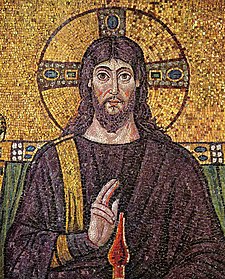"Christianity, on the other hand, is humane, practical, and, in a large sense, radical. So many years and ages of the gods those Eastern sages sat contemplating Brahm, uttering in silence the mystic "Om," being absorbed into the essence of the Supreme Being, never going out of themselves, but subsiding farther and deeper within; so infinitely wise, yet infinitely stagnant; until, at last, in that same Asia, but in the western part of it, appeared a youth, wholly unforetold by them,—not being absorbed into Brahm, but bringing Brahm down to earth and to mankind; in whom Brahm had awakened from his long sleep, and exerted himself, and the day began,—a new avatar. The Brahman had never thought to be a brother of mankind as well as a child of God."
 The Vatican said the cardinal was pulling out of the visit solely on health grounds
The Vatican said the cardinal was pulling out of the visit solely on health grounds
One of the Pope's senior advisers has pulled out of the papal visit to Britain, after reportedly saying the UK is a "Third World country" marked by "a new and aggressive atheism".
Cardinal Walter Kasper, 77, made the remarks in a German magazine interview.The Vatican said the cardinal had not intended "any kind of slight", and was referring to the UK's multicultural society.
It added that he had simply pulled out of the Pope's visit due to illness.
End Quote Clifford Langley The TabletThey are saying it is ill health, but I wonder if that is the fact. I wonder if he has been dropped because he is an embarrassment”
The German-born cardinal was quoted as saying to the country's Focus magazine that "when you land at Heathrow you think at times you have landed in a Third World country".
He also was reported to have criticised British Airways, saying that when you wear a cross on the airline "you are discriminated against".Vatican sources said Cardinal Kasper - who stepped down in July as the head of the department that deals with other Christian denominations - was suffering from gout and had been advised by his doctors not to travel to the UK.
The Pope is spending four days in Scotland and England, starting on Thursday.
'Talking nonsense'
The BBC's correspondent in Rome, David Willey, said the cardinal's reported comments were "a slightly clumsy thing to have done on the eve of the visit".
However, he added that he did not think it would have much effect on the Pope's trip to the UK.
Clifford Langley, from Catholic newspaper The Tablet, said the cardinal was "obviously talking nonsense".
"I don't think he believes Britain is in the grip of secular atheism, and he shouldn't have said so," said Mr Langley.
"They are saying it is ill health [that has forced the cardinal to drop out of the visit], but I wonder if that is the fact. I wonder if he has been dropped because he is an embarrassment."
British Airways said the cardinal had been "seriously misinformed" in his claims about the airline.
"It is completely untrue that we discriminate against Christians or members of any faith," it said in a statement.
 Strength of the Catholic Church
Strength of the Catholic Church



